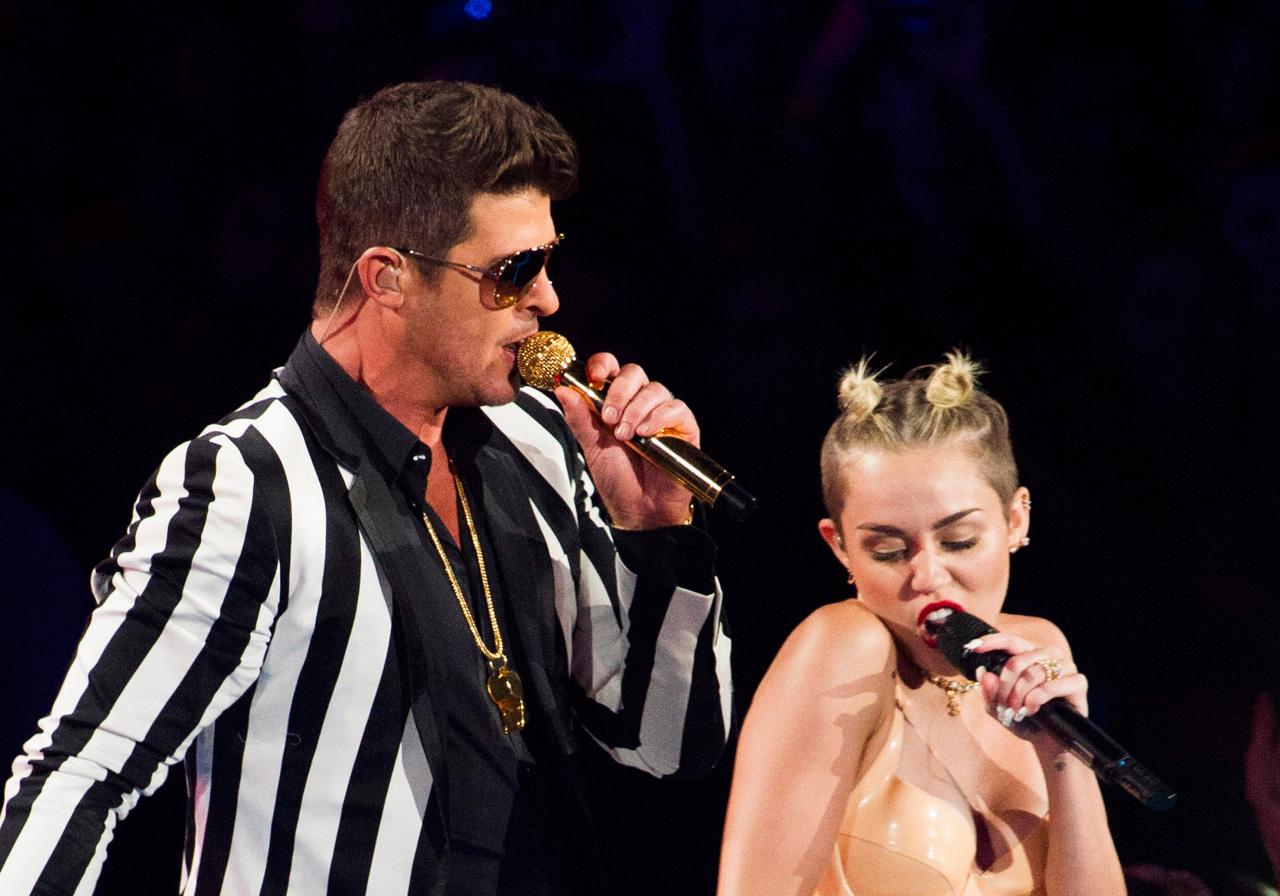What's left to say about Miley?
The former tween star's already-notorious performance at Sunday's MTV Video Music Awards has everyone freaking out, about the vulgarity, about the sexism, about the racism – not to mention the problematic celebration of drug culture in her song "We Can't Stop" and the misogynistic date-rape vibe of Robin Thicke's song "Blurred Lines," which the two performed together.
Sigh.
Are we really back here again? It's been 29 VMAs since Madonna writhed in her wedding dress to "Like a Virgin," 23 VMAs since Prince wore butt-baring pants, 12 VMAs since Britney performed "I'm a Slave 4 U" wrapped in a live snake, and four VMAs since Sacha Baron Cohen dressed as a dark angel and landed crotch-first on Eminem's head.
The VMAs exist to shock, and by promising to deliver a moment "even crazier" than 2003's Britney-Madonna kiss, Miley left little doubt about her intention to use this performance to carve out her own place alongside these icons of pop.
Part of me hates even acknowledging this event by writing about it—we're giving MTV and Miley exactly what they want. But when people are talking, they're also listening, and it's important to think through what our response communicates about who we are.
As Christians, when confronted with something offensive, we often condemn it on instinct. We want to make sure everyone knows how strongly we disagree, how completely we disapprove, how far we want to distance ourselves from such behavior. (To some extent this seems like a human instinct, given how much everyone has gone on and on this week about Miley at the VMAs.)
There's absolutely a time and a place to call out sin, but if all we do is shame Miley—a 20-year-old girl who grew up extremely privileged, extremely sheltered, and extremely publicly and is now in the process of discovering her adult identity—for her behavior, and bemoan one more nail in the coffin of this world, what are we communicating about a God who loves sinners and offers hope not just from them but to them?
Jesus loves Miley. Nothing she could do could separate her from his love. Even more than she needs to know how we feel about her dance moves, or her drug use, or her sexual history, she needs to know that truth. The world needs to know that. The way we talk about other people, particularly those we condemn, communicates a lot about who we are and what we are about to other people who are "outside," even when it's not their choices we're berating in a public forum.
So when it comes to our response to Miley, should we be shocked? No. It's no surprise when an awards show celebrating the music industry peddles sex appeal, the very force that drives so much of today's pop music.
Should we be disappointed? Sure. Miley's Disney origins made her a role model to many kids, and once upon a time she spoke out about her Christian beliefs, though she distanced herself from her faith long before this weekend.
Should we be offended? Absolutely. Her suggestive dancing and tiny outfit are really the least of our worries. Robin Thicke has gotten far less attention for his role in this, but as a 36-year-old, married, father, he took on a power position, singing fully clothed while Miley grinded on him and bent over. And don't even get me started about Miley's appropriation of "ratchet" culture and objectification of black women.
We don't know Miley personally, so it's easy to bash her. We never have to look her in the eyes and watch her face as we call her performance trashy. If we did know her, maybe we would think more deeply about why she made those choices, and how we can help support her in a way that keeps her from making them again.
In our eagerness to hate on her, we forget that we know Mileys, women and men who have so deeply absorbed the messages that in-your-face sexuality is the easiest way to get attention, and that attention is the same thing as value. God offers more to us, and he wants more for us. That is a response worth communicating – Jesus loves you, Miley, and he loves all the Mileys of this world. He can't stop.









